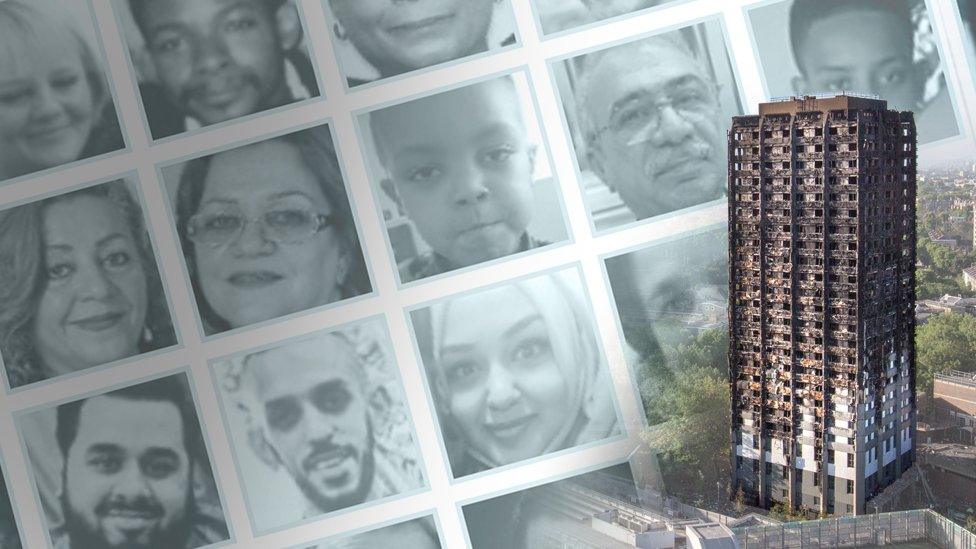Grenfell Tower inquiry: Firms 'pulled the trigger' on victims
- Published
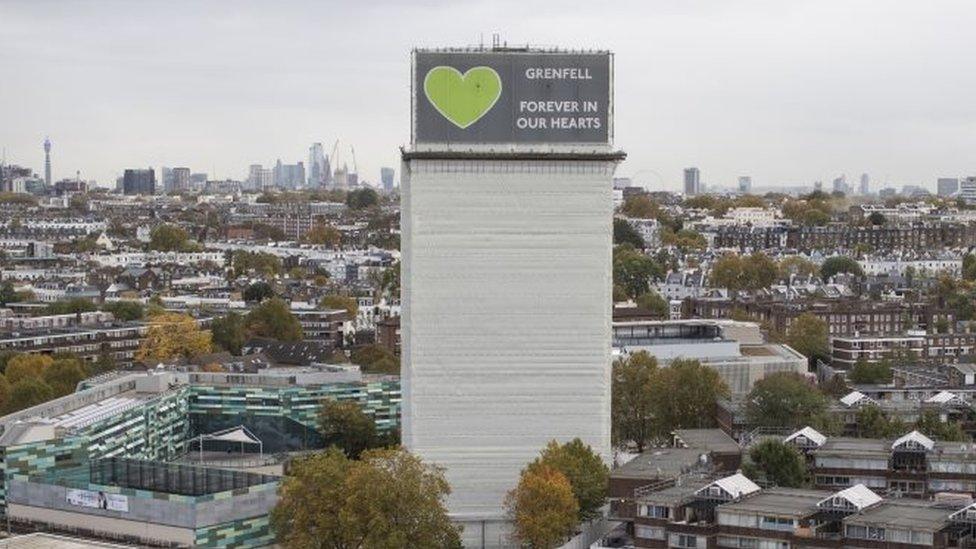
Firms involved in the refurbishment of Grenfell Tower are as much to blame for the victims' deaths as if they had "pulled the trigger" of a gun, an inquiry into the tragedy has heard.
The insulation supplier saw the block as a "flagship" for its product and promoted it despite knowing it should have been recalled, one barrister said.
The fire in June 2017 killed 72 people.
The companies deny responsibility and want a guarantee that the evidence they give will not be used in prosecutions.
Sam Stein QC, representing the victims, bereaved and survivors at a hearing on Thursday, said companies "killed" when they "promoted their unsuitable dangerous products in the pursuit of money".
Another barrister representing victims said that Celotex and Arconic, the manufacturers of the insulation and cladding respectively, "exploited" a lack of knowledge about building regulations in efforts to promote their products.
Stephanie Barwise QC said that both companies knew their products were "highly flammable" and showed "contempt" for safety.
Ms Barwise also said:
The Kensington and Chelsea Tenant Management Organisation (KCTMO), which oversaw the refurbishment, did not question whether reducing costs would compromise safety, and used a fire risk assessor who it had been warned was "prone to make unjustified statements"
In an internal email in 2014, an Arconic sales manager said she was "working on" projects including "Grenfell Towers" - despite the firm previous saying that it wasn't necessarily aware where cladding would be installed
Fire safety consultancy Exova made a "seriously misleading" statement when it said in reports that the proposed changes "will have no effect on the building in relation to external fire spread" - which it added would be confirmed by analysis in a future report. Exova knew about proposals for new insulation and cladding by November 2013, but the risk assessment was not updated
Building contractor Rydon failed to obtain advice from Exova on external fire spread
The government was holding a "ticking time bomb" by not rewriting its fire safety guidance despite knowing as far back as 2000 it was inadequate.
The inquiry also heard that residents had asked the Royal Borough of Kensington and Chelsea (RBKC) three months before the fire for an assessment of the tower block by an independent health and safety inspector.
An RBKC official wrote to the then-chief executive of the KCTMO that they were "not minded to agree to this request" and that the KCTMO's work had been "more than sufficient".
The inquiry's first phase found the cladding was the "principal" reason for the rapid and "profoundly shocking" spread of the fire at the 25-storey building in June 2017.
Its second phase, which began on Monday, is looking at how the building came to be covered in flammable cladding during its refurbishment between 2012 and 2016.
The inquiry heard that - with the "sole exception" of the RBKC, which accepted that the refurbishment should not have been signed off - all organisations involved in the work had denied responsibility.
The following day, emails disclosed to the inquiry suggested that companies knew a planned cladding system would fail in the event of a fire.
On Wednesday, firms asked for a guarantee that anything they say in the hearings will not be used as part of future prosecutions.
- Published29 January 2020
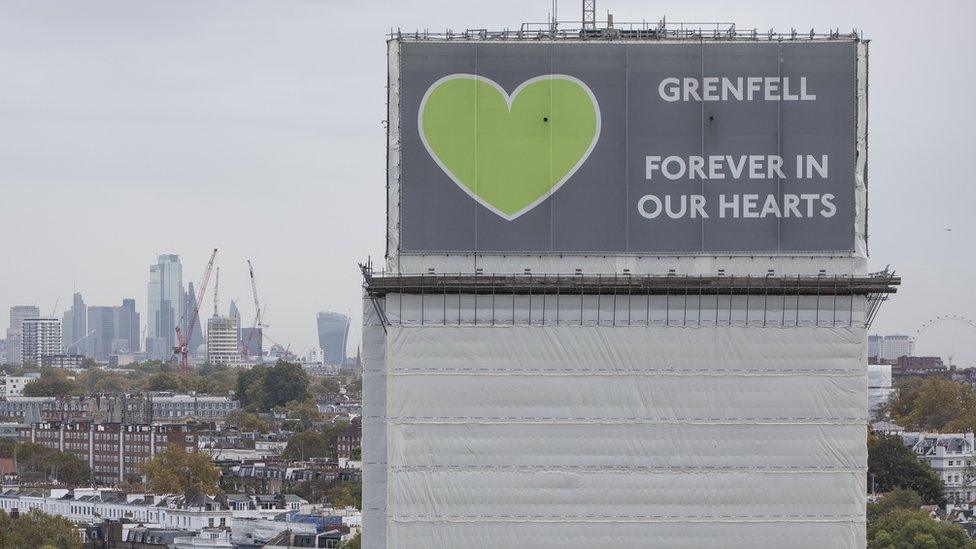
- Published28 January 2020
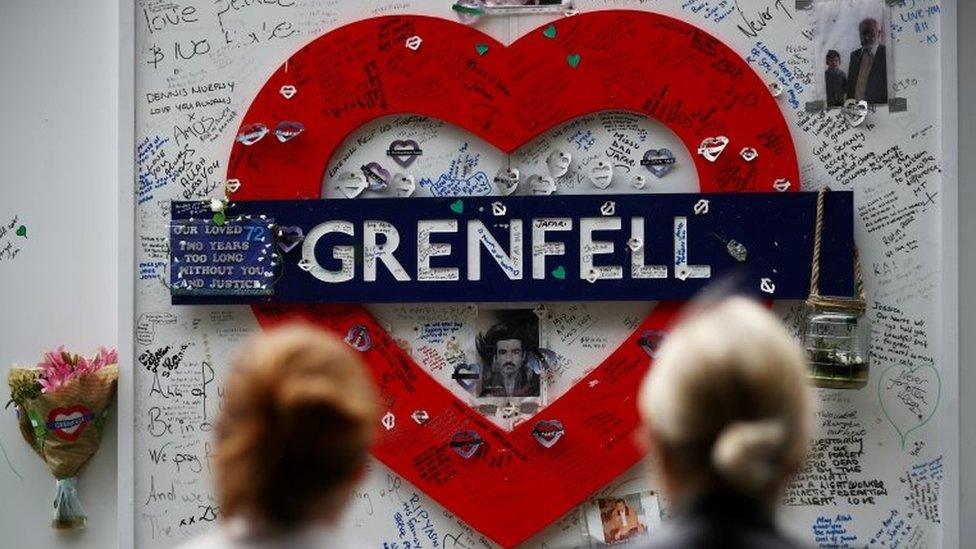
- Published27 January 2020

- Published29 October 2019
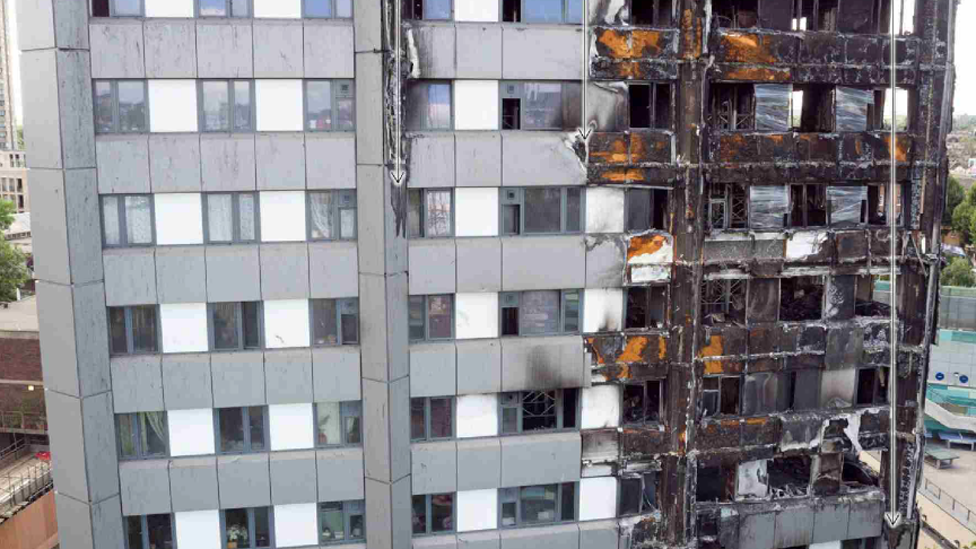
- Published30 October 2019
- Published30 May 2018
